
If you’ve got big dreams of building a practice of your own from the ground up, take it from the winner of the dvm360 Hospital Design Competition in the “less than 8,000 square feet” category: It can happen for you.

If you’ve got big dreams of building a practice of your own from the ground up, take it from the winner of the dvm360 Hospital Design Competition in the “less than 8,000 square feet” category: It can happen for you.

Certified leadership and wellness coach Kristina Guldbrand shares some tips to help you keep your veterinary team connected during these challenging times.
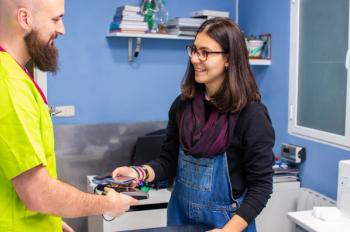
New data highlight another way your veterinary practice may be able to increase revenue: Offer additional payment options.

The agency is temporarily suspending enforcement of certain aspects of the federal veterinarian-client-patient relationship (VCPR) requirements, but state requirements remain in force.
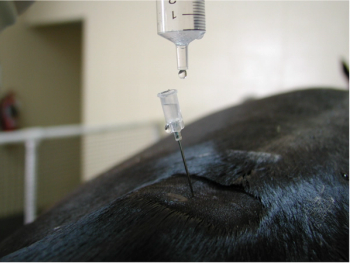
Caudal epidural anesthesia allows for invasive procedures while the horse is sedated in standing position without pain or discomfort.

A flagship study details tick infestations in pet dogs and cats in the United States.

Before our headlines and newsfeeds contained almost exclusively COVID-19 news, who could have imagined the transformation our daily lives would undergo at both work and home?

A look at veterinary news highlights from this week.

The new WSAVA initiative has already awarded one veterinarian with scholarship funds, pain management training and the title of the first key opinion leader of veterinary pain management, but the technician scholarship is still up for grabs.

According to the university's veterinary team, this screening tool is superior to any other that utilizes routine blood tests available to veterinarians.

A New Jersey small animal veterinarian shares how the pandemic has impacted his practice and explains his new approach for veterinary house calls.

This mispronunciation may elicit giggles, but our clients may actually be onto something. Here’s why veterinarians might want to turn up the heat on heartworm tests.

Veterinarians and medical professionals should conserve personal protective equipment (PPE) until supplies become more readily available.
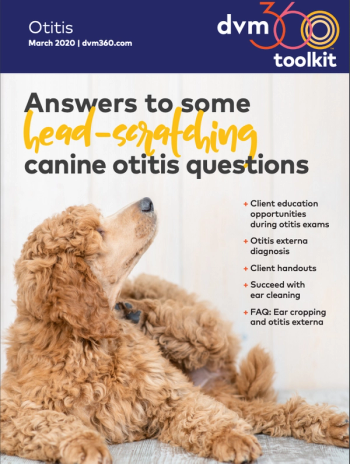
Use these expert tips and tools to hone your otitis diagnosis and treatment skills, and make it as easy as possible to educate pet owners about this painful and annoying condition. (With an educational grant provided by Bayer)

Practice manager and regular dvm360.com contributor Emily Shiver shares how her clinic's protocols are evolving during the COVID-19 pandemic.

Both associations have urged lawmakers to classify veterinary practices as ‘essential’ because, they say, not doing so could negatively impact both animal welfare and the wellbeing of pet owners.

The dean of Cummings School of Veterinary Medicine at Tufts University explains how and why veterinary professionals are vital in the fight against the novel coronavirus.

With COVID-19 interrupting life as we know it, how can veterinary teams remain calm while continuing to offer patient care? Certified leadership and wellness coach Kristina Guldbrand offers some tips.

If you’re on the fence about whether to add wellness plans to your practice offerings, consider these obstacles and opportunities first.

This independent organization is at the forefront of heartworm disease monitoring.
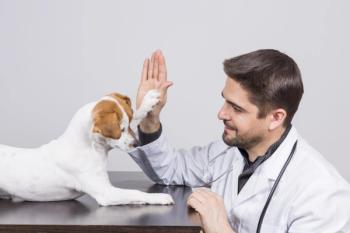
You know your veterinary clients need to be proactive partners in the successful management of a pet’s ear infection, whether acute or chronic. Use these communication tips to ensure a positive outcome for the pet, the pet owner and your entire team
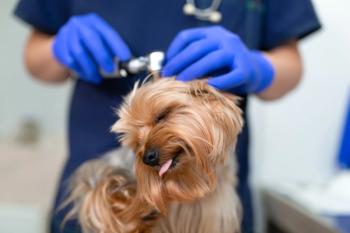
As one of the top reasons dogs come into your veterinary clinic, you certainly get a lot of practice diagnosing otitis. But because practice doesn’t necessarily make perfect, veterinary dermatologist Dr. Ashley Bourgeois shares her solutions to some common diagnostic conundrums.
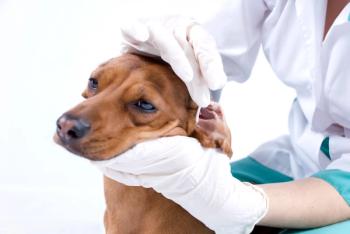
Don’t let faulty ear cleaning be the reason your veterinary patients suffer from chronic ear disease.

It remains unclear how much havoc the COVID-19 pandemic will wreak for people and businesses around the world before it ends. In the meantime, the AVMA continues to offer guidance for veterinary practices.

Otitis in puppies (especially those floppy-eared cuties) can be tricky for pet owners to catch until the infection is well on its way to causing pain and discomfort. Give clients this handout so they can recognize clinical signs of otitis as early as possible.

Researchers from Colorado State University want to stop feline enteric coronavirus before it has a chance to mutate into feline infectious peritonitis.

It’s been something of a struggle to establish pet insurance as a standard in pet care in the United States, but a new generation of pet owners may be changing that.

Millennials are one of the largest driving forces behind pet health insurance growth.

Make sure pet owners understand that ear cropping isn't a get-out-of-jail-free card when it comes to otitis externa.

Feeling confident in your history-obtaining abilities, veterinarians? If you’re not asking your veterinary clients these 11 questions the next time you’re facing an otitis case, you might want to reconsider.